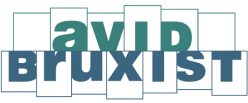Susan Engel said in her New York Times op-ed, “Playing to Learn” (2/1/10), what I would have said if I were smarter. Here it is:
THE Obama administration is planning some big changes to how we measure the success or failure of schools and how we apportion federal money based on those assessments. It’s great that the administration is trying to undertake reforms, but if we want to make sure all children learn, we will need to overhaul the curriculum itself. Our current educational approach — and the testing that is driving it — is completely at odds with what scientists understand about how children develop during the elementary school years and has led to a curriculum that is strangling children and teachers alike.
In order to design a curriculum that teaches what truly matters, educators should remember a basic precept of modern developmental science: developmental precursors don’t always resemble the skill to which they are leading. For example, saying the alphabet does not particularly help children learn to read. But having extended and complex conversations during toddlerhood does. Simply put, what children need to do in elementary school is not to cram for high school or college, but to develop ways of thinking and behaving that will lead to valuable knowledge and skills later on.
So what should children be able to do by age 12, or the time they leave elementary school? They should be able to read a chapter book, write a story and a compelling essay; know how to add, subtract, divide and multiply numbers; detect patterns in complex phenomena; use evidence to support an opinion; be part of a group of people who are not their family; and engage in an exchange of ideas in conversation. If all elementary school students mastered these abilities, they would be prepared to learn almost anything in high school and college.
Imagine, for instance, a third-grade classroom that was free of the laundry list of goals currently harnessing our teachers and students, and that was devoted instead to just a few narrowly defined and deeply focused goals.
In this classroom, children would spend two hours each day hearing stories read aloud, reading aloud themselves, telling stories to one another and reading on their own. After all, the first step to literacy is simply being immersed, through conversation and storytelling, in a reading environment; the second is to read a lot and often. A school day where every child is given ample opportunities to read and discuss books would give teachers more time to help those students who need more instruction in order to become good readers.
Children would also spend an hour a day writing things that have actual meaning to them — stories, newspaper articles, captions for cartoons, letters to one another. People write best when they use writing to think and to communicate, rather than to get a good grade.
In our theoretical classroom, children would also spend a short period of time each day practicing computation — adding, subtracting, multiplying and dividing. Once children are proficient in those basics they would be free to turn to other activities that are equally essential for math and science: devising original experiments, observing the natural world and counting things, whether they be words, events or people. These are all activities children naturally love, if given a chance to do them in a genuine way.
What they shouldn’t do is spend tedious hours learning isolated mathematical formulas or memorizing sheets of science facts that are unlikely to matter much in the long run. Scientists know that children learn best by putting experiences together in new ways. They construct knowledge; they don’t swallow it.
Along the way, teachers should spend time each day having sustained conversations with small groups of children. Such conversations give children a chance to support their views with evidence, change their minds and use questions as a way to learn more.
During the school day, there should be extended time for play. Research has shown unequivocally that children learn best when they are interested in the material or activity they are learning. Play — from building contraptions to enacting stories to inventing games — can allow children to satisfy their curiosity about the things that interest them in their own way. It can also help them acquire higher-order thinking skills, like generating testable hypotheses, imagining situations from someone else’s perspective and thinking of alternate solutions.
A classroom like this would provide lots of time for children to learn to collaborate with one another, a skill easily as important as math or reading. It takes time and guidance to learn how to get along, to listen to one another and to cooperate. These skills cannot be picked up casually at the corners of the day.
The reforms suggested by the administration on Monday have the potential to help liberate our schools. But they can only do so much. Our success depends on embracing a curriculum focused on essential skills like reading, writing, computation, pattern detection, conversation and collaboration — a curriculum designed to raise children, rather than test scores.


